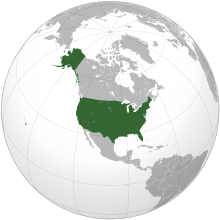U.S. Reconsiders Drone Strike Policy – Analysis
By JTW
By Harriet Fildes
Should Obama have lost the election on November 6th, this would have been his legacy. In an effort to ensure a set of definitive rules were in place for the next president, the administration rushed to develop a rigid set of rule and procedures regarding the use of unmanned drones by the Central Intelligence Agency and the military.
Given the throngs of people killed in US drone strikes; around 2500 since Obama was first elected in 2008, this may not be of pressing concern for the administration now their second term is assured but it is certainly an urgent issue for the world.

Proceedings are delayed due to intense debate within the administration. The point of contention arises over when the use of drones can be justified.
The administration is by no means harmonious in how to address this issue with some, such as Obama’s counter-terrorism advisor; John O. Brennan, arguing drones should only be used as a last resort and in the defence of the United States and others, mainly the C.I.A and the Defense Department, asserting that they can be used in cooperation with foreign governments to help them fight terrorism.
Given that under Obama there have been 300 drone strikes, increasing the use of this policy tool from once every forty days under the Bush administration to once every four since Obama has been in office, it would appear that the latter argument dominates policy-making in the White House.
The legal ground for such extra-judicial killing is tenuous at best given the conspicuous lack in “imminent” threat particularly given America’s frequent condemnation of other states using this tactic before 9/11, notably, Israel.
Yet since the first US drone strike in 2002 in Yemen which killed 6 people, amongst whom was a U.S. citizen and a senior al Qaeda operative, the use of drones has become common practice, justified on the basis that the US is at was with a transnational terrorist organisation; al Qaeda, and consequently, it must be able to defend itself using any means necessary, even if those means are in violation of U.S. domestic law, international law and the norms of sovereignty.
As with the use of torture by the Bush administration, this perpetuates the state of exception which has dominated US foreign-policy making since 2001, extending the president’s most worrying and menacing power; the power to kill without any judicial or congressional oversight.
Furthermore, such actions on the part of the U.S. create a legal black-hole allowing any country who is “defending” themselves to use extra-judicial, targeted assassination- exemplified by the recent crisis in Palestine, largely exacerbated by Israel’s killing of Ahmed Jabari- the leader of Hamas’s military wing and incidentally, one of the main interlocutors negotiating and assisting Israel in Gaza.
As with Gaza, the effects of using drones and extra-judicial killings are not easily predicted meaning that they may well deeply exacerbate the existing problem. In Pakistan alone, up to 884 civilian deaths have been confirmed with this number including 176 children according to the the Bureau of Investigative Journalism.
These figures are likely to be skewed given the guilty-until-proven-innocent attitude taken toward any male casualties of military age. Notably, John Brennan has stated that “the U.S. Government has not found credible evidence of collateral deaths resulting from U.D. Counterterrorism operations outside of Afghanistan or Iraq”, not an overly credible claim given the statistics from Pakistan alone.
The ramifications of such extensive “collateral damage” cannot be quantified but certainly it enables militant recruiting, sours relations between the US and targeted countries and, with the majority of Pakistani’s deeming the U.S. an “enemy” according to the Pew Research Center, is perpetuating the problem it seeks to combat; international terrorism aimed at the US. A study by law professors from Stanford and NYU has shown that the use of drones in Pakistan has a “damaging and counterproductive effect”.
Aware that use of drones as a major counter-terrorism policy tool in Pakistan, Yemen, Iraq, Somalia and Afghanistan is legitimising and encouraging other countries to use such extreme measures, the U.N has plans to begin investigations next year into the use of drone strikes by the US. Condemned by Christof Heyns, the UN special rapporteur on extra-judicial killings, as a threat to 50 years of international law and possibly constitutive of war crimes, the use of this ethically and strategically questionable tactic is beginning to receive the international attention it deserves.
Thus, with pressure both at home, since the New York Times published on the president’s controversial “kill list”, and abroad given the recent publicity of this issue, Obama began work last year to institutionalise the practice and circumstances of drone use, compelled by the fear that Romney might have won the election. This is somewhat ironic given the aforementioned increase of drone strikes under from the Republican era to Obama.
In an interview with John Stewart on the Daily Show, Obama stated that “One of the things we’ve got to do is put a legal architecture in place, and we need Congressional help in order to do that, to make sure that not only am I reined in but any president’s reined in terms of some of the decisions that we’re making,”
However, he also stated that “creating a legal structure, processes, with oversight checks on how we use unmanned weapons, is going to be a challenge for me and my successors for some time to come” suggesting that the pressing nature of this issue has elapsed since the election. Nevertheless, given the recent media and public attention, this issue will hopefully remain at the fore and impel more transparency and accountability by the administration.
